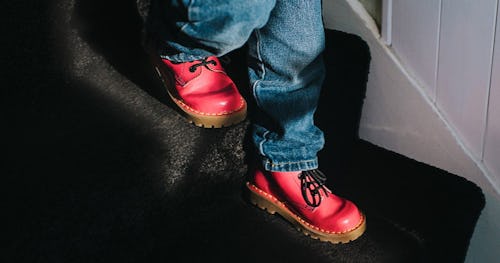
By the time their kids reach 30-months-old, or 2-and-a-half years, many parents start to view milestones in light of whether their children will be ready to begin preschool in the next year or two. Benchmarks such as potty training can be stress-inducing, especially for kids who pick up the skill later than their peers. But it’s important to remember that kids develop at their own pace, and a kid can develop proficiency in several skills in short order. In other words, 30-month milestones can help parents identify if their child may have a developmental delay, but being later to meet one milestone shouldn’t stress you out too much.
Thirty-month milestones didn’t exist until recently. In February 2022, the Centers for Disease Control and Prevention and the American Academy of Pediatrics overhauled the pediatric milestone checklist. This process included adding developmental milestones for 30-month-olds.
Your toddler may start feeling like a big kid around this age, with many developmental milestones focused on socialization and independence. They will start to show more interest in interacting with kids their age and will try to complete basic tasks on their own — even though their ambition will far outpace their skillset.
30-Month Developmental Milestone #1: Learning and Problem-Solving Skills Mature
It’s probably time to start hiding the cookies on top of the fridge, as 30-month-olds show basic problem-solving skills such as using a stool or chair to grab something that is slightly out of reach. And if you catch them mid-heist, they’ll have the ability to understand multi-step requests such as “Get down and put the chair away, please.”
Kids this age will also show signs of learning in their pretend play. For example, kids may pretend blocks are different types of food while playing kitchen or that a cardboard box is a vehicle.
Red Flags: Kids this age should play a lot. A child who isn’t interested in toys or engaging in imaginative play is likely showing signs of a developmental delay.
What You Shouldn’t Stress About: Not obeying a parent’s request differs from not understanding a parent’s request. Expect your child to push boundaries and show persistence when you redirect them. Be patient, and don’t take it personally.
30-Month Developmental Milestone #2: Tries to Do Things Independently
Around 30 months, kids learn to start dressing themselves. Unfortunately, kids this age are terribly slow at dressing themselves, and they may refuse help. This independence extends to other tasks such as opening doors, putting things away, and getting items for themselves. It will take a while, but letting your 2-and-half-year-old work through the awkward stages of figuring it out will help them learn.
Red Flags: Thirty-month-olds should be able to manually manipulate small objects such as crayons or eating utensils. They will typically be able to independently turn pages in a book. Some kids may not want to demonstrate these skills to a doctor or developmental specialist, so consider recording your child in everyday situations if they’re shy in front of strangers.
What You Shouldn’t Stress About: Toddlers will want to attempt complex tasks, even those that frustrate them. Since tantrums are still common at 30 months, these kids may be particularly resistant to a parent’s efforts to step in and help. Teaching them self-soothing skills such as deep breathing will help keep them from getting too flustered.
30-Month Developmental Milestone #3: Being a Social Butterfly
Thirty-month-olds may not have friendships, but they typically enjoy playing next to other children and sometimes with them. Language skills like putting two words together and a vocabulary of about 50 words also help their social development. And they tend to show pride in the new skills they pick up and will beckon your attention to get you to notice.
Red Flags: The inability to understand simple instructions or communicate in short phrases can greatly inhibit social interactions and development at this age. And although kids will still be a bit clingy at 30 months, extreme difficulty separating from their primary caregiver is worrisome, especially when combined with little interest in other kids.
What You Shouldn’t Stress About: Part of social development is learning how to behave when things don’t go your way. It’s typical for toddlers to start hitting or biting when they’re frustrated. Although they may have better motor control than infants, language development in them and their peers can cause exasperation. When eruptions happen, don’t take it personally and instead lean into gentle correction and modeling how to calmly deal with frustration.
30-Month Developmental Milestone #4: Complex Movement
As coordination increases, kids develop the ability to make larger and more complex movements. The ability to jump off of two feet opens the door for new games, and toddlers are typically able to walk up stairs by placing two feet on each stair.
Red Flags: Occasional falls, bonks, and trips are to be expected. But frequent falls and difficulty with stairs — especially when a railing or supports are available — are cause for concern.
What You Shouldn’t Stress About: Kids tend to make a big jump in coordination between 30 months and 36 months. By 2-and-a-half, some kids are able to kick and catch balls as well as pedal tricycles on their own. But an inability to do those more complex tasks isn’t a concern at this point.
Non-Milestone Moments Beyond Baby’s 30th Month
Potty training and teething are two significant events in a child’s life, but both vary widely with when they happen. Although parents have more control over the former than the latter, it’s important not to rush kids who aren’t ready for potty training. If you make a run at it and things just aren’t working out, take a break and try again in a few weeks or months.

